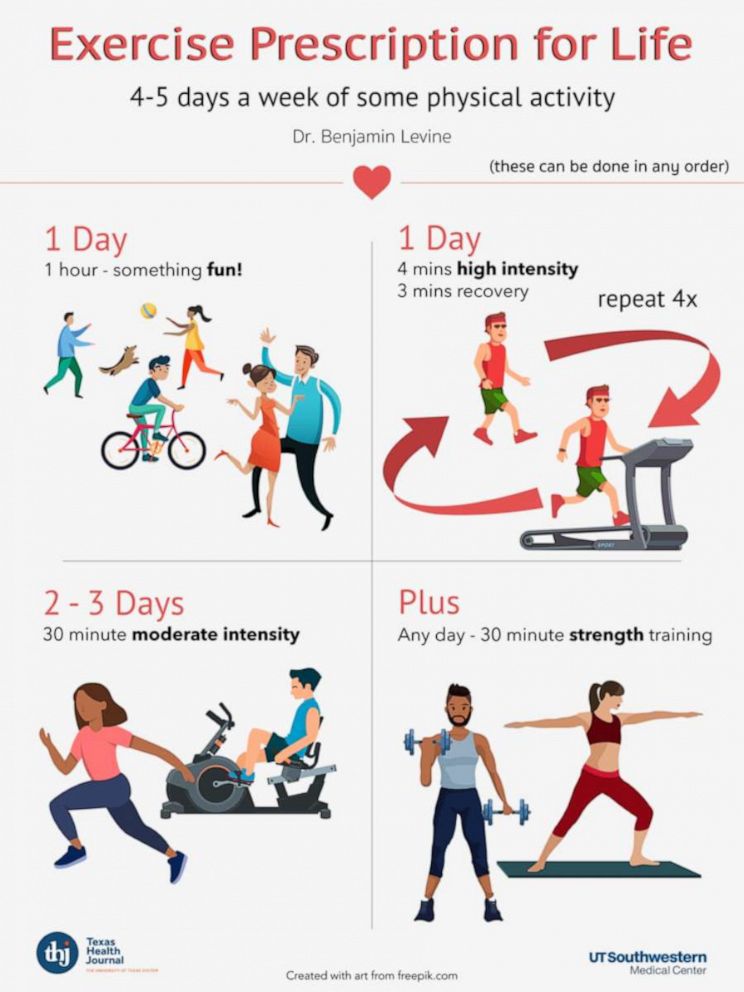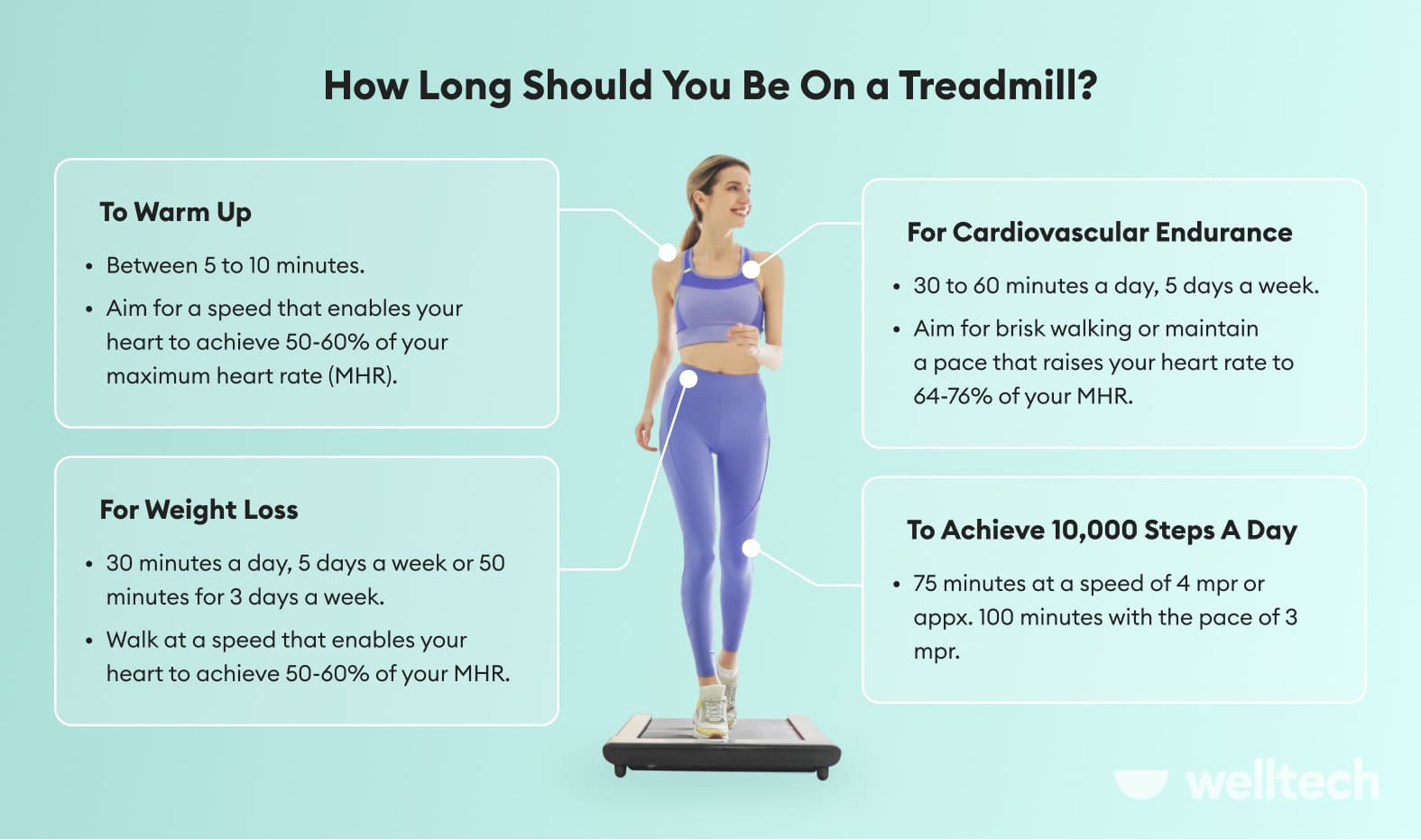How long should you exercise each day to see real results? You’ve probably asked yourself this question more than once.
Maybe you want to lose weight, build strength, or simply feel healthier. The answer isn’t the same for everyone, but knowing the right amount of daily exercise can make a huge difference in how fast you reach your goals. Keep reading to discover simple, effective guidelines that fit your lifestyle and help you get the most out of every workout.
Your body will thank you.

Credit: abcnews.go.com
Benefits Of Daily Exercise
Daily exercise offers many benefits for both body and mind. It improves how you feel and helps keep you healthy. Even a short time of activity can make a big difference. Let’s explore the key benefits of exercising every day.
Physical Health Improvements
Exercise strengthens muscles and bones. It helps your heart pump blood better. Your lungs get stronger and work more efficiently. Regular activity improves your energy levels. It also helps control weight by burning calories. Your body feels more flexible and less stiff. Daily movement reduces the risk of injuries.
Mental Well-being Boosts
Exercise lifts your mood and lowers stress. It helps reduce feelings of anxiety and sadness. Physical activity releases chemicals that make you feel happy. Your sleep quality improves after daily exercise. It also boosts your focus and memory. Moving your body can increase self-confidence. Regular exercise helps you feel calmer and more relaxed.
Long-term Disease Prevention
Daily exercise lowers the risk of many diseases. It helps prevent heart disease and stroke. Regular activity reduces chances of type 2 diabetes. Exercise also protects against some types of cancer. It helps control blood pressure and cholesterol levels. Keeping active supports a healthy immune system. Staying fit reduces the risk of obesity and related problems.

Credit: welltech.com
Recommended Exercise Durations
Exercise is important for health and well-being. Knowing how long to exercise each day helps you stay fit without getting tired. Different groups of people need different amounts of exercise. The right time spent moving keeps your body strong and your mind sharp.
Follow these guidelines to find the best exercise duration for your age group. Small, regular steps bring big health benefits.
Guidelines For Adults
Adults should aim for 150 minutes of moderate exercise weekly. This means about 30 minutes a day, five days a week. You can also do 75 minutes of intense activity each week. Mixing both types works well. Break exercise into smaller parts if needed. Even 10-minute sessions help your health.
Children And Teenagers
Kids need more movement to grow strong. At least 60 minutes of daily exercise is best. Most activities should be fun and active. Play sports, run, or ride bikes. Include activities that build muscles and bones three times a week. Exercise helps their body and brain develop well.
Older Adults
Older adults benefit from 150 minutes of moderate exercise weekly too. Balance and flexibility exercises help prevent falls. Strength training twice a week keeps muscles healthy. Walking, swimming, or gentle yoga are good choices. Exercise keeps joints moving and improves mood.
Types Of Exercise And Time Needs
Different types of exercise need different amounts of time each day. Your daily workout depends on what you want to achieve. Some exercises focus on heart health, others on muscle strength or body movement. Understanding these types helps plan your exercise time well.
Each exercise type has a unique goal and time need. Balancing cardio, strength, and flexibility leads to better overall fitness. Below are the main exercise types and their suggested daily durations.
Cardio Workouts
Cardio exercises raise your heart rate and improve breathing. Examples include walking, running, cycling, and swimming. Aim for at least 30 minutes most days. You can split this into shorter sessions if needed. Cardio helps burn calories and boosts energy.
Strength Training
Strength training builds muscles and strengthens bones. Use weights, resistance bands, or bodyweight exercises. Spend about 20 to 30 minutes two to three times a week. Focus on different muscle groups each session. This type improves posture and overall strength.
Flexibility And Mobility
Flexibility exercises keep your joints moving well and reduce injury risk. Stretching, yoga, and Pilates are good choices. Aim for 10 to 15 minutes daily or after workouts. These exercises help your body stay loose and improve balance.

Credit: www.everydayhealth.com
Factors Influencing Exercise Time
Exercise time varies from person to person. Several factors affect how long you should work out each day. Understanding these helps create a balanced routine. It makes sure your efforts match your needs and lifestyle.
Let’s explore key factors that influence daily exercise duration. These include your fitness goals, current fitness level, and available time.
Fitness Goals
Your fitness goals shape how long you exercise daily. For weight loss, longer sessions may be needed. For building strength, shorter but intense workouts work better. Endurance training often requires steady, longer exercise. Clear goals help set the right exercise time.
Current Fitness Level
Your fitness level affects how long you can safely exercise. Beginners need shorter sessions to avoid injury and fatigue. More fit people can handle longer and harder workouts. Gradually increasing exercise time improves fitness without overdoing it.
Available Time And Schedule
Time limits and daily schedule also influence exercise length. Busy days may allow only short workouts. Consistency beats length; even 10 minutes daily helps. Plan exercise around your routine for better success. Find a balance that fits your lifestyle.
Balancing Intensity And Duration
Balancing the intensity and duration of exercise is key to staying healthy and fit. Exercise should challenge your body without causing too much tiredness or injury. Finding the right mix helps you enjoy workouts and keep a steady habit. Both how hard and how long you exercise matter for your results.
High-intensity Interval Training
High-Intensity Interval Training (HIIT) mixes short bursts of hard exercise with rest. These sessions last about 15 to 30 minutes. HIIT burns many calories fast and improves heart health. It suits people with little time for workouts. But it can be tough for beginners or those with health problems.
Moderate Steady-state Exercise
Moderate steady-state exercise means working at a steady, medium pace. Activities like walking, jogging, or cycling fit here. Sessions usually last 30 to 60 minutes. This type helps build endurance and burns fat. It is easier on the joints and good for beginners. It also reduces stress and improves mood.
Combining Both Approaches
Mixing HIIT and moderate exercise offers the best of both worlds. You get intense bursts that boost fitness and longer sessions that build stamina. For example, try HIIT two days a week and steady exercise three days. This balance keeps workouts fresh and reduces boredom. It also lowers the risk of injury from too much intensity.
Signs Of Overtraining
Exercise is good for health, but too much can harm the body and mind. Overtraining happens when the body does not get enough rest. It causes many signs that warn you to slow down.
Recognizing these signs helps keep exercise safe and effective. Watch for changes in how your body feels and your mood.
Physical Symptoms
Overtraining causes tired muscles and joint pain. You may feel soreness that lasts longer than usual. Sleep problems like trouble falling asleep can appear. Your heart rate might stay high even at rest. Frequent colds or infections can also show a weak immune system.
Mental And Emotional Indicators
Feeling tired all day is common with overtraining. You might lose interest in exercise or feel unmotivated. Mood swings and irritability often increase. Focus and concentration can get worse. Stress feels heavier and harder to manage.
Preventing Burnout
Rest days are essential to recover and avoid burnout. Balance exercise with enough sleep and good food. Listen to your body’s signals and reduce workouts if needed. Change your routine to include light days or different activities. Staying hydrated helps the body heal faster.
Tips For Staying Consistent
Staying consistent with daily exercise is key to seeing good results. Regular workouts help build strength and improve health over time. Many people start strong but lose motivation after a few days. Simple tips can keep you on track and make exercise a habit. Small changes in your routine can create lasting success.
Setting Realistic Goals
Choose goals that fit your current fitness level. Start with short sessions and increase time gradually. Clear and simple goals prevent frustration and burnout. For example, aim for 15 minutes of walking daily. Realistic goals help build confidence and keep you moving forward.
Tracking Progress
Write down your workouts each day. Use a notebook or a phone app to record time and type of exercise. Seeing your progress motivates you to keep going. Tracking helps spot patterns and areas for improvement. Celebrate small wins to stay encouraged and focused.
Incorporating Variety
Change your exercises to avoid boredom. Mix cardio, strength, and flexibility workouts. Try new activities like cycling, yoga, or dancing. Variety challenges different muscles and keeps things fun. A diverse routine reduces the risk of injury and improves overall fitness.
Frequently Asked Questions
How Many Minutes Should I Exercise Daily For Health?
Experts recommend at least 150 minutes of moderate exercise weekly. That equals about 20-30 minutes daily to improve heart health and fitness.
Is 30 Minutes Of Exercise Enough Per Day?
Yes, 30 minutes daily is effective for weight management and overall health. Consistency matters more than duration for lasting benefits.
Can Short Workouts Be As Effective As Long Ones?
Short, high-intensity workouts can boost metabolism and burn calories efficiently. Quality and intensity often outweigh longer, less focused sessions.
How Often Should I Exercise To See Results?
Exercising 3-5 times a week yields noticeable fitness improvements. Regularity and balanced rest are key to steady progress and injury prevention.
Conclusion
Exercising daily helps keep your body and mind healthy. Aim for at least 30 minutes of activity each day. You can split exercise into shorter sessions if needed. Find exercises you enjoy to stay motivated and consistent. Rest days are important for your muscles to recover.
Listen to your body and adjust your routine as needed. Small steps lead to big health benefits over time. Stay active, feel better, and enjoy a happier life.
